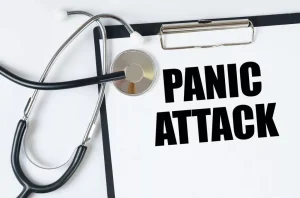Staging An Intervention: Helping Make A Change

The Navigator offers a step-by-step process to finding a highly qualified professional treatment provider. Alcohol.org is a subsidiary of American Addiction Centers (AAC), a nationwide provider of addiction treatment. Some organizations, like Alcoholics Anonymous or Narcotics Anonymous, can give you a contact number for an interventionist.
Support for Me and My Family

Remember that changing long-standing patterns is hard, takes time, and requires repeated efforts. We usually experience setbacks along the way, learn from them, and then keep going. Setbacks can be common, so you will want to know how they are addressed. For more information on a return to drinking, see An Ongoing Process. You may be able to better compare your options by assessing whether and how the program or provider measures success. Given the diverse biological processes that contribute to AUD, new medications are needed to provide a broader spectrum of treatment options.
Who should be on the intervention team?

Common mental health conditions that co-occur with AUD are depressive disorders, anxiety disorders, trauma- and stress-related disorders, other substance use disorders, and sleep disorders. Studies show that people who https://ecosoberhouse.com/ have AUD are more likely to suffer from major depression or anxiety over their lifetime. When addressing drinking problems, it’s important to also seek treatment for any accompanying medical and mental health issues.
Products and Services
If a counselor is present, they might conduct a brief counseling session. Let them know family members and friends want to speak to them about an issue so they aren’t blindsided. Choosing a neutral, distraction-free location and convenient time is how to do an intervention for an alcoholic best for everyone. If possible, don’t plan the intervention during another event, such as a family holiday. If you believe you or someone you love may be struggling with addiction, let us hear your story and help you determine a path to treatment.
How to Plan an Intervention for Alcoholism
- This means they will continue to drink, even when they face serious consequences.
- Let them know family members and friends want to speak to them about an issue so they aren’t blindsided.
- Alcohol or drug addiction can make a person’s state of mind fragile.
- Yet that’s the position family members find themselves in when a loved one addicted to drugs or alcohol denies having a problem.
- The Navigator offers a step-by-step process to finding a highly qualified professional treatment provider.
It sometimes includes a member of your loved one’s faith community or others who care about the person struggling with addiction. The Johnson Model is a common intervention approach in the US and seeks to push the individuals involved in substance abuse into rehabilitation programs. On the contrary, ARISE, an updated method, uses the family as well, in a non-confrontational way, intending to get the person into treatment. In family and community-based programs, SMART interventions establish specific, measurable goals. Also, Family Systemic Intervention deals with the addiction of the individual along with the overall broader effects on family relationships, thus promoting a family approach to therapy and support. AAC is recognized as a leading provider of alcohol detox and rehab.
If your loved one doesn’t accept help
Instead, help them find the best treatment option for them so they can get back on track to long-term recovery. You may encourage them to call their sponsor, research other treatment options with them such as long-term treatment, or utilize another professional resource. It’s also essential to research different treatment and rehab programs. The research will help your loved one trust you and feel comfortable seeking help. Treatment arrangements should be made in advance of an intervention for a family member. If a person shows some or all of the symptoms above, and they have refused to seek treatment, an intervention may be needed.
Work With Confidant Health For Alcohol Help

The goal is to get every family member to seek help from both individual and family therapy. This intervention style focuses on the person’s support system, which usually includes family members. During the intervention, all parties are encouraged to express their point of view. An ARISE intervention aims to promote healing and empowerment for the addicted person and their family members. An ARISE intervention is less confrontational than the Johnson Model.






